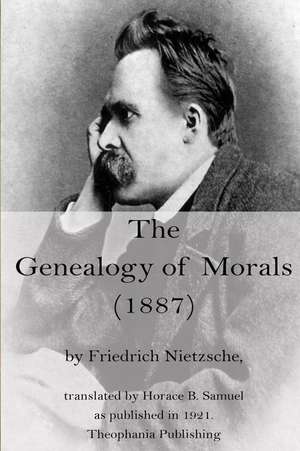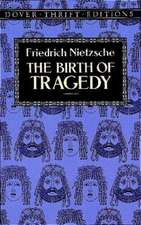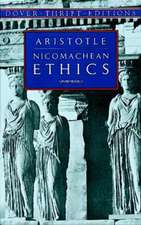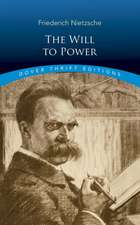The Genealogy of Morals
Autor Friedrich Wilhelm Nietzsche Traducere de Samuel, Horace B.en Limba Engleză Paperback
| Toate formatele și edițiile | Preț | Express |
|---|---|---|
| Paperback (5) | 31.13 lei 3-4 săpt. | +10.23 lei 10-14 zile |
| Dover Publications – 31 mar 2003 | 31.13 lei 3-4 săpt. | +10.23 lei 10-14 zile |
| CREATESPACE – | 128.44 lei 3-5 săpt. | |
| – | 56.28 lei 6-8 săpt. | |
| – | 81.53 lei 38-44 zile | |
| CreateSpace Independent Publishing Platform – | 128.09 lei 6-8 săpt. |
Preț: 128.09 lei
Nou
24.51€ • 25.66$ • 20.40£
Carte tipărită la comandă
Livrare economică 29 martie-12 aprilie
Specificații
ISBN-10: 1519305656
Pagini: 226
Dimensiuni: 152 x 229 x 12 mm
Greutate: 0.31 kg
Editura: CreateSpace Independent Publishing Platform
Descriere
Major work on ethics, by one of the most influential thinkers of the last 2 centuries, deals with master/slave morality and modern man's current moral practices; the evolution of man's feelings of guilt and bad conscience; and how ascetic ideals help maintain human life under certain conditions.
Textul de pe ultima copertă
Written in response to a book on the origins of morality by his erstwhile friend Paul Ree, the three essays comprising "The Genealogy of Morals" all three advancing the critique of Christian morality set forth in "Beyond Good and Evil" are among Nietzsche's most sustained and cohesive work.
In the first essay starting from a linguistic analysis of words such as "good," "bad," and "evil" Nietzsche sets up a contrast between what he calls "master" morality and "slave" morality and shows how strength and action have often been replaced by passivity and nihilism. The next essay, looking into the origins of guilt and punishment, shows how the concept of justice was born and how internalization of this concept led to the development of what people called "the soul." In the third essay, Nietzsche dissects the meaning of ascetic ideals.
It is not Nietzsche's intention to reject ascetic ideals, "slave" morality, or internalized values out of hand; his main concern is to show that culture and morality, rather than being eternal verities, are human-made. Whether or not you agree with all of his conclusions, his writing is of such clarity and brilliance that you will find reading "The Genealogy of Morals" nothing short of exhilarating."
























